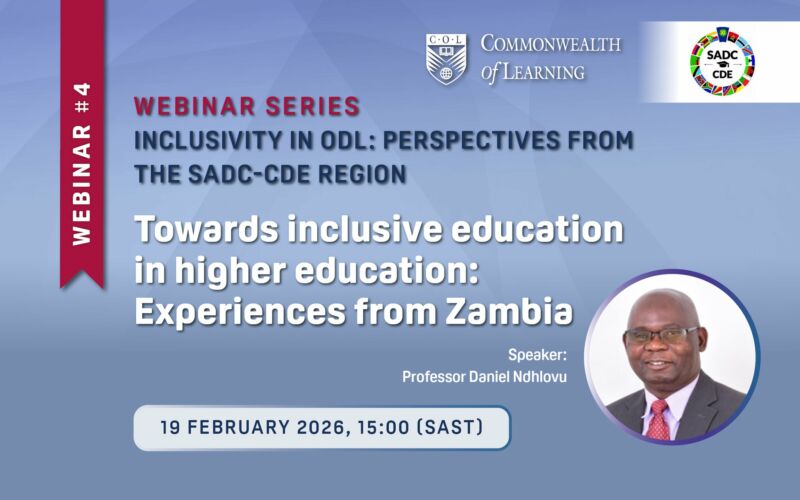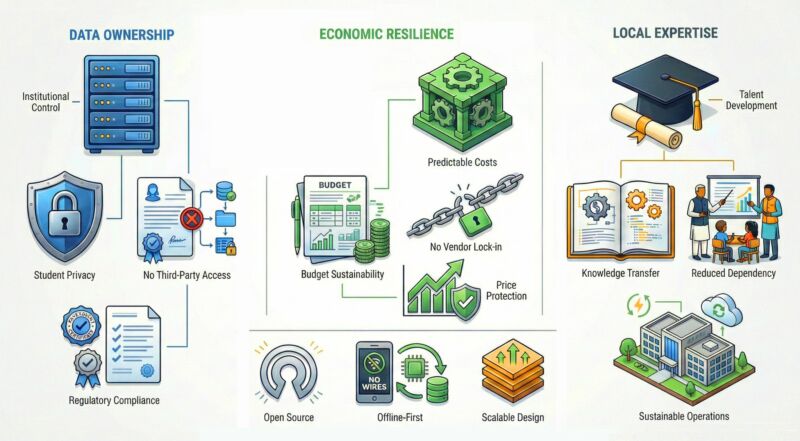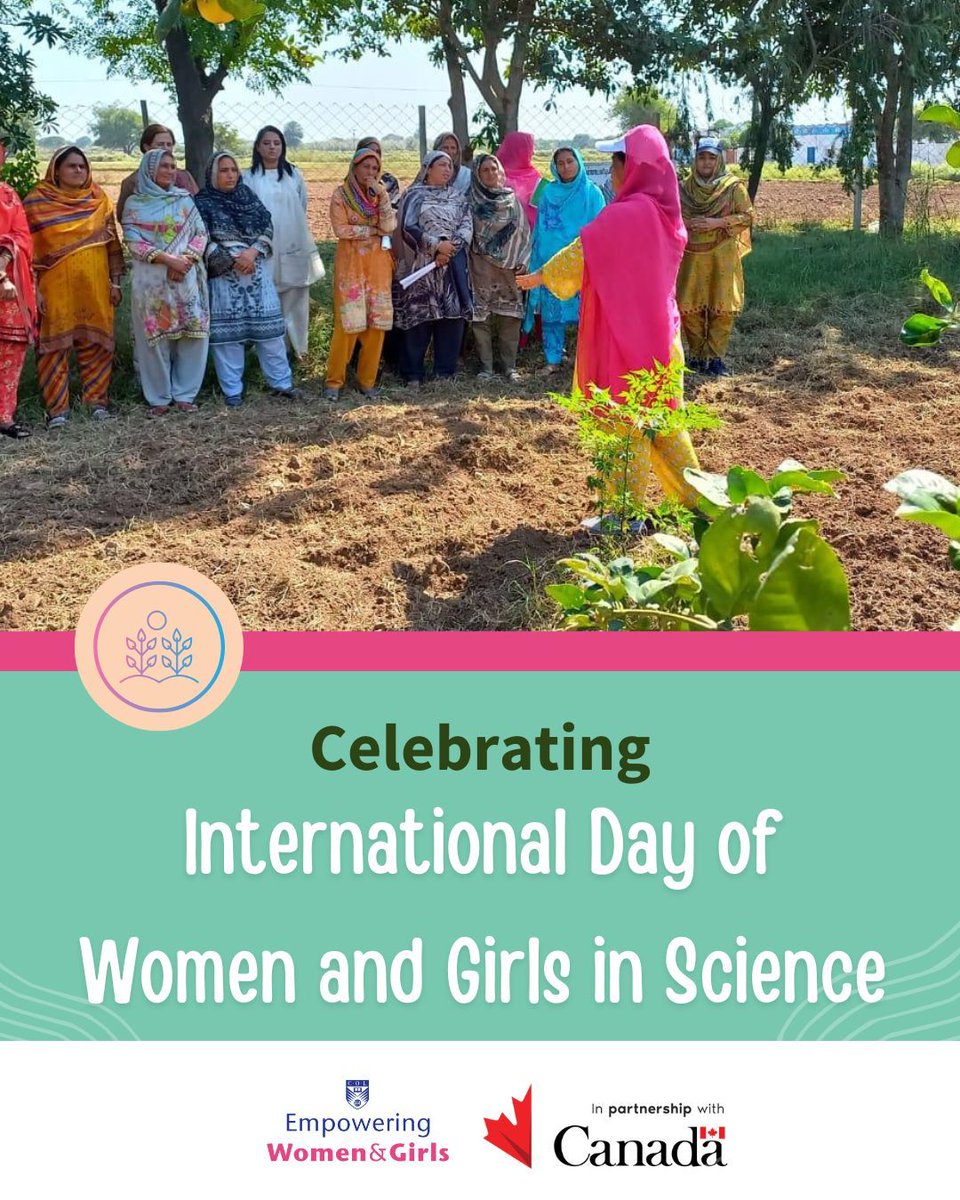How can higher education institutions, particularly those operating at scale through Open and Distance Learning (ODL), advance inclusion while strengthening learner success, equity, and long-term sustainability?
Join our upcoming webinar to discover practical insights from Zambia and reflect on how inclusive ODL can strengthen your institutional goals.
🔗 Register now: www.col.org/news/towards-inclusive-education-in-higher-education-webinar-experiences-from-zambia/
SADC Centre for Distance Education #InclusiveEducation #highereducation #opendistancelearning #ZambiaEducation
... See MoreSee Less
Artificial Intelligence in education is no longer experimental. As adoption shifts from pilots to institutional services, the central challenge is no longer whether AI can be used, but how it can be sustained financially, operationally, and ethically, without compromising institutional autonomy. At COL, we see Frugal AI as a strategic response to these interconnected challenges.
But what exactly is Frugal AI? It is a design philosophy that prioritises deploying AI with minimal resource intensity while ensuring maximum local control.
Next week, at the AI-India Impact Summit, we’ll be diving into the topic with international experts during our session on teacher-led, localised, and Frugal AI for equitable education in the Commonwealth.
Until then, learn more: www.col.org/news/frugal-ai-a-roadmap-to-sovereign-genai-for-education/
Disclaimer: This infographic was generated using AI tools.
#IndiaAIImpactSummit2026 #ResponsibleAI #PeoplePlanetProgress INDIAai Ministry of Electronics & Information Technology, Government of India Ministry of Education Press Information Bureau - PIB, Government of India Ministry of Higher Education,Research Science and Technology GIS Mauritius The University of the South Pacific Kenya School of TVET IIT Jodhpur Dr. Babasaheb Ambedkar Open University Canada in India (High Commission of Canada) India in Vancouver - Consulate General of India The Commonwealth Commonwealth Foundation
... See MoreSee Less
This week, on the International Day of Women and Girls in Science, our Empowering Women & Girls (EWG) Project highlighted their work in supporting women and girls with context-relevant skills training to build knowledge in science, mathematics, and beyond.
At COL, we remain committed to ensuring that women and girls are not only included in science education but also empowered to use their knowledge to strengthen communities and shape futures.This February 11, we celebrate the International Day of Women and Girls in Science.
Around the world, women and girls still face barriers to accessing education in science, mathematics and technology.
Through the Empowering Women and Girls project, we support women and girls with context-relevant skills training that builds practical knowledge in science, mathematics, and beyond. With our community partners, participants learn agricultural techniques such as crop rotation and creating local fertilizers and compost, alongside financial literacy, computer skills, and more.
Today, we shine a light on the urgent need to ensure that women and girls have access to the education and skills they deserve to learn, lead, and thrive.
... See MoreSee Less









